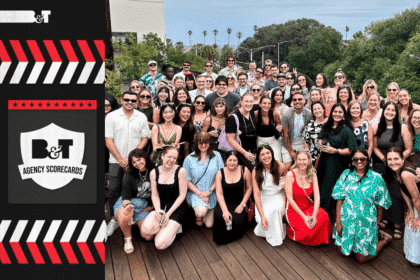Bob Hoffman, also known as the Ad Contrarian, has slammed large parts of the adtech industry that have become de rigueur within the space, despite them leading to a range of problems for the sector and wider society.
Speaking to the Uncensored CMO podcast, Hoffman said that the customer tracking and personalisation has been bad for democracy and people’s lives but also for the quality of creative work produced in the advertising industry.
Talking about an article he wrote in 2013, Hoffman said “We weren’t quite as sophisticated or as technologically adept as we are now, [but] we’re starting to follow everyone everywhere and know everything they’re doing that is going to lead to nothing but trouble.
“In those days, people were like ‘Wow, where’s this guy coming from?’ But I think I was right. There has been a lot of trouble that has been derived from spying on the public.”
Hoffman then referenced 2017 research from SuperAwesome, a company that works in the youth digital media ecosystem, that found that by the time a child is 13 years old, the adtech industry had collected around 72 million data points about them.
“That is unconscionable… it is bizarre. It’s something from another world. It’s not from our world. The sad part is that the advertising and marketing industry doesn’t seem too worried about it.”
The problem, according to Hoffman, is that the advertising industry is too inward-looking and has become too focused on extracting maximum data and measuring everything in the search of a perfect campaign. In reality, the most effective form of advertising, according to Hoffman, is brand building.
“Inside our little world, we take this stuff very seriously. Outside of our little world, the advertising industry is looked at as kind of ridiculous and silly…
“But now it has become dangerous and that’s because of tracking. A study by Facebook executives in 2018 found that 64 per cent of people who joined extremist groups on Facebook did so because they were led there by the Facebook algorithm. Where does the Facebook algorithm get its information? From tracking us.
“Facebook has all this information, your Facebook looks completely different from mine. Why? Because the algorithm that describes you is completely different from the one that describes me and they know how to keep us in the corral. They want to keep us in the corral because the longer that we’re there, the more money they make from selling us to advertisers.
“Then they feed us incrementally more lurid notions of our own beliefs. That’s how they keep us in the corral. This leads us into rabbit holes and the rabbit holes introduce us to extremists.”
Hoffman’s ire was not merely saved for listeners of the Uncensored CMO podcast, however. A day prior, Hoffman slammed David Cohen, CEO of the IAB for a “wretched and deceitful” talk at the company’s annual leadership conference.
“The essence of his talk was an assertion that those who criticize the dreadful privacy abusing policies of the online advertising industry are ‘extremists’ who are out to ‘eliminate [the ad industry] from the American economy and culture,'” wrote Hoffman.
“These assertions are at best ignorant and at worst totally fucking ignorant.” (Emphasis in original).
He continued:
“Advertising is essential to the free web as we know it. The average person spends over six hours a day online. We get free entertainment, free information, and free communication from the web. And advertising funds virtually all of it. Without advertising, the web as we know it could not exist.
“But the online ad industry has a galaxy of problems. It is shockingly corrupt and seriously dangerous. And most of the problems are related to the online ad industry’s original sin: tracking.”
Back on the podcast, Hoffman explained:
“It costs a lot of money to run a platform and they have to make that money somewhere and advertising is where that money comes from.
“We did advertising for decades without tracking, without following people. We did it very successfully. We did it very profitably. There is no reason why we have to spy on the public to be successful advertisers. The adtech industry has sold regulators on the idea that tracking is necessary to their business model and that if they can’t do tracking, their business model falls apart.
“That is another way of saying that online advertising is such a weak force, that the only way it can be successful is if you are spying on the public. That tells you everything you need to know.”
According to Hoffman, this level of tracking has led to a warping of the idea advertising in the digital age.
“One of the great misconceptions of the current era is the idea of one-to-one, personalised, perfectly targeted advertising. That’s not how advertising works. One-to-one personalised advertising is private advertising. You don’t know what I’m seeing, I don’t know what you’re seeing.
“Advertising works best when it’s public advertising, when I know what you’re seeing, you know what I see. The basis of advertising, cut away all the bullshit, is about creating fame for a brand. A brand that is famous has an advantage over its competitors that are not famous.
“How did Donald Trump become President of the US? Because he was famous. If The Apprentice had been a webinar, I guarantee you he would never have been President.”








